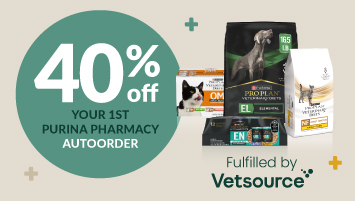New Puppy & Kitten Checklist
Posted by Feeders Pet Supply on Jan 2nd 2024
New Puppy Checklist:
Bringing home a new puppy is the best thing on
this planet! However, there can be a lot to prepare for, which can feel
overwhelming. The best way to ease your mind and make your puppy feel right at
home in their new space is to ensure you have everything they need to thrive.
- A High-Quality Puppy Food: Choosing a high-quality food for your puppy plays a significant role in shaping their immune system and body composition. Puppy formulas contain extra protein, vitamins, fats, and minerals your puppy needs to grow strong and healthy. Some of our preferred brands are Intuition, Orijen, Acana, and Fromm.
- Canned pumpkin: Your new puppy's digestive system is still developing, leaving them prone to diarrhea and an upset belly. Trust us, you will want to keep some pumpkin pouches in your cabinet. Not only does pumpkin taste delicious to your puppy, but it's full of fiber, which can bulk up a runny stool and is excellent for their digestive system.
- Collar, Leash, & ID Tag: Walks, runs, and strolls outside are in your future! Make sure to get a collar and a leash to take your furry friend everywhere with you. An ID tag is so crucial for obvious reasons. We'd also recommend talking to your veterinarian about getting your dog microchipped. That way, they can be scanned and reunited with you if they ever should slip their collar or get lost.
- A Harness: A harness is an excellent choice for walking your new puppy because it does not put pressure on their neck.
- Dog Bed: Puppies can sleep up to 18 hours daily, so ensure you get them a nice, cozy space to sleep on and call their own.
- Dog Crate: Crates do not necessarily need to be forever but can be a lovely training tool for your young puppy. Some dogs enjoy having their own safe space, which can be in a crate.
- Dog Toothbrush & Toothpaste: Over 80% of dogs over three years old have active dental disease. Brushing your dog's teeth is just as important as it is for people. Getting your puppy familiar and comfortable with having their teeth cleaned will help ensure that your puppy isn't a part of that 80%.
- Fun & Interactive Toys: Puppies are curious little creatures that love to explore and will play with anything they can get their paws on. Giving your puppy an outlet to expend their pent-up mental and physical energy with some awesome toys is essential! We love the classic Kong, Burrows, & the Chuckit.
- Training Treats: Reward that first successful potty trip outside with some delicious tiny treats! We recommend anything soft for their puppy teeth. Another favorite is freeze-dried treats. They typically have one or two ingredients, are delicious, and crumble easily, making each bag last longer.
- Food & Water Bowls: Food and water bowl for apparent reasons. We 10/10 recommend getting your pup a slow feeder bowl. Puppies tend to eat very fast, causing them to swallow air, which can lead to bloating and gas.
- Enzyme Cleaning Spray for Accidents: We want to tell you that you won't need it, but 'whoopsies' are inevitable with your new puppy. Our Incredipet Odor & Stain Eliminator is a fan favorite.
- Dog Shampoo & Conditioner: When your puppy inevitably rolls in something unpleasant, it's crucial to have a pet-friendly shampoo and conditioner on hand.
- Grooming Wipes: Same as above, but these wipes are fantastic to keep in your car for any unexpected spills or thrills your puppy may get into while you're out exploring the world.
- Poop Bags & Dispenser: Don't be 'that dog parent' that gets caught without a bag when your puppy poops on your neighbor's lawn! We love this cute little canvas bag.
- Pooper Scooper: We'd recommend the adjustable Metal Pooper Scooper with a rake so you clean your yard without having to bend over.
Lastly, remember to enjoy yourself and all of
the little moments. They only have that heavenly puppy breath for so long, and
we want you to enjoy every little moment.
New Kitten Checklist:
Are you planning to bring a new kitten into your home this year? We have a ton of helpful tips and tricks for you to make sure that the transition is easy for you and your new best furry friend.
- Kitten Proof Your Home: Cats, especially kittens are instinctively curious and will explore anything and everything in their new environment. Here are 10 top priority things to consider when kitten-proofing your house.
- Remove Dangerous Houseplants: We love indoor plants, but some are harmful and toxic to your new kitten. The ASPCA has compiled a complete list of toxic and non-toxic plants for your cats. Look it over to make sure that you don’t have any of these in your home.
- Protect Your Furniture: Cats have a natural instinct to scratch. They can scratch to express emotions, to mark objects with their scent, manicure their nails, or to simply get a good stretch in. Offsetting those scratching tendencies with a cat tree or scratcher will help your kitten realize what is a safe scratching space, and what isn’t. If all else fails, we sell scent deterrents you can spray on areas that you are noticing your kitten scratching, or clawing at.
- Look Up: Cat’s natural instinct is to hang out in spaces with good vantage points to protect themselves in the wild. Meaning, your window curtains & tall bookshelves may not be safe from the wrath of your new kitten. First, make sure any tall or heavy pieces of furniture are properly secured to the wall so they don’t topple over. We recommend getting them a tall cat tower or a window perch where they can go up high, without causing a ruckus. If that doesn’t work, try Sticky Paws to help deter inappropriate climbing/ scratching.
- Put A Lid On It: Securing your trash, compost, and recycling bins is always a good idea, but even more so when you have a new kitten around. Tossed objects like dental floss, or bones can cause major intestinal problems if ingested. Recyclable items like glass or metal cans can be sharp and dangerous for little paws. Cardboard can be chewed up, again causing intestinal issues. Avoid the mess altogether; either get a lid for these bins, or make sure they are locked up and in a secure place.
- Secure Blind Cords: Loop up or tie long blind cords so that your kitten cannot tangle themselves in them and get hurt.
- Doors & Windows: Kittens love to look out of windows and doors. Before they’re fully vaccinated, and spayed or neutered, it’s especially important to make sure that they do not get outside. This can be achieved by making sure that your windows are latched, and being extra careful when entering or exiting your home.
- Cords & Wires: Now we don’t know why, but some kittens absolutely love to chew on electrical cords and wires. If your kitten does this, you’ll want to invest in some cord protectors, or tape them down with double sided tape (cats hate having sticky paws).
- Keep the Toilet Bowl Closed: Kittens are so small, that they can easily slip into an open toilet, and possibly drown. This can be a great habit to get into for the rest of their lives, especially if you use harmful toilet bowl cleaners.
- Practice Animal-Safe Pest Control: Most roach, rodent, and ant poisons can kill or seriously harm your kitten if ingested. If you must use these in your home, make sure they are 100% inaccessible to your kitten, or that they’re cat safe.
- Remove Fragile Items: Anything you have that is easily breakable, should be locked up and secured in a cabinet or closet before you bring your kitten home. As soon as you learn your cat’s behavior you can gradually bring things back out.
- Go Shopping Fur Essentials At Feeders: It’s important to make sure that you have everything your kitten will need to thrive in their new home. We’ve compiled a New Kitten Checklist to help you and your kitten get off on the right paw.
- Find A Veterinarian & Schedule An Appointment: Finding a vet is essential for your kittens health and wellbeing. Normally, kittens leave their mothers to find their forever homes around 8 weeks old, which is great time to set up an appointment to see a vet. If you have adopted from a local shelter or rescue group, it’s likely that your new kitten may already have some vaccinations, a microchip, and possibly be spayed or neutered. However, it’s still a good idea to get them in with a vet, and share your kittens prior medical record with them.
- Get Your Kitten Microchipped: Millions of cats and kittens get lost each year. If your cat gets out and isn't microchipped, they have a very slim chance of being reunited with you and your family. Even if your new kitty is going to be an inside kitty exclusively, you can never be too careful. Ask your veterinarian about microchipping, or we have Pet Care Clinics that visit our stores on a regular basis that also does this.
- Buy Cat Insurance: To help prepare for all of your kittens lifelong vet visits, and any unplanned medical costs, we’d highly encourage you to look at pet insurance plans for your kitten. At Chow Hound Pet Supplies, we partner with Met Life Insurance. You may click here to see why so many of our team members have chosen Met Life to insure their pets, and click here to sign up.
We hope this list of tips and tricks have helped you to feel safe and confident in taking your new kitten home. Having them in your house is such a joyful and fulfilling experience. As you spend time with your fur child, you’ll undoubtedly form a close bond and create wonderful memories that will last a lifetime.



